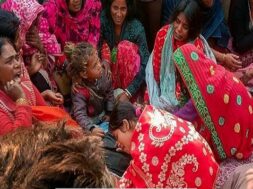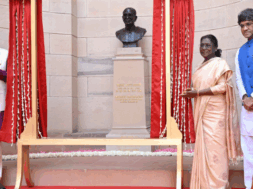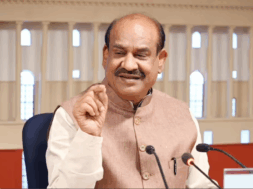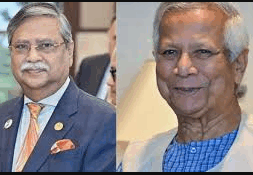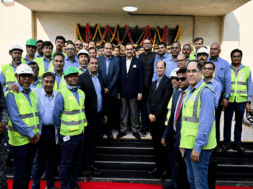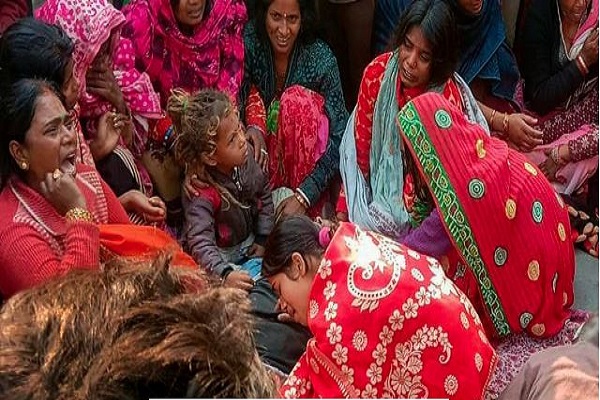
BJP’s Guru Prakash writes: In the face of liquor deaths, Nitish Kumar has shown negligence and callousness towards the poor and marginalised in Bihar
In an unfortunate and avoidable tragedy, 39 people in Bihar’s Chhapra lost their lives after consuming illegal country liquor. These deaths are not an isolated event but part of a larger trajectory and pattern.
Note the following: 13 deaths in Nitish Kumar’s home district, Nalanda, in January; over 30 deaths across districts after Holi and 40 deaths in the state during Deepawali. From this, one fact is undeniable: Whatever the Bihar government under Nitish Kumar may claim, liquor is not only available in Bihar but also consumed frequently. The people who can afford to illegally procure foreign liquor from neighbouring states are few and a large number of poor and marginalised people resort to country-made “hooch”. The latter, often made by novices without following proper standards, is often the culprit behind incidents like the most recent tragedy. Most of those who suffer are Dalits, from backward communities and other marginalised sections.
Nitish Kumar’s comment “पियोगे तो मरोगे” for unfortunate deaths in #ChhapraHoochTragedy is unconscionable.
He must take responsibility for the failed liquor ban in the state. Sharing my article for today’s Indian Express.https://t.co/TMJ9FNd2mu pic.twitter.com/IbeH2BJp9N
— Dr. Guru Prakash Paswan (@IGuruPrakash) December 19, 2022
In a so-called social justice dispensation, this amounts to gross negligence and poor governance, almost targeting the poor and the marginalised. Only a day before the mishap, CM Nitish Kumar was busy declaring Tejashwi Yadav his successor. This, in the land where one of the earliest democracies was envisioned in the Licchavi republic in what is today the Vaishali district. The self-declared followers of Ram Manohar Lohia and Jayaprakash Narayan declaring an “uttaradhikari” has to be one of the great political travesties of our time. And it is this lack of sensitivity and an insatiable lust for power that can be seen in Nitish’s comments after the deaths: “Jo sharaab peeyega, wo toh marega hi na… Udaharan saamne hai — peeyoge toh maroge (Those who drink liquor will obviously die. We have an example in this case).”
Perhaps Nitish Kumar can afford to be delusional sitting in the CM’s residence surrounded by his faithful coterie from the “marriage of convenience” between the JDU and RJD. Meanwhile, the poor people of Bihar continue to pay for his policies with their lives. It is notable that other states like Kerala (in 2014) and Haryana (in 1996) too have dabbled with banning alcohol but dropped the idea when it became apparent that enforcing the ban was administratively impossible.
While there are few studies and little research on the relationship between alcoholism and poverty in India, it is generally agreed that the motives for drinking among the poor and rich are different. While the rich can drink for pleasure, the poor drink as an escape from the grind of back-breaking work. Although it may appear negligible to some, this difference goes a long way in institutionalising alcoholism and, in turn, alcohol-related health crises among the poor. Just painting alcohol consumers as “sharaabi” and “deserving to die” is easy for the misinformed, but it is inexcusable for someone who has been chief minister of one of the largest states in India in terms of population for 16 long years.
While opportunist politicians like Nitish Kumar may use the so-called “woman vote” to justify the illogical and whimsical liquor ban, a sizable chunk of lawmakers in Bihar believe that it must be re-examined. It creates an unnecessary burden on the state exchequer (which loses excise tax) with the added disadvantage of deploying the police force towards the never-ending pursuit of liquor sellers and consumers.
If there is an iota of morality left in Nitish Kumar, he must resign, taking full responsibility for the deaths, instead of issuing statements that reflect his callousness. In a state that needs focused governance, it is a criminal waste to spend this much time and administrative energy in the pursuit of a futile political agenda. Judicial pendency and loss of revenue in a revenue deficit state are also unaccounted factors. The CM must show grace and respect the people.
